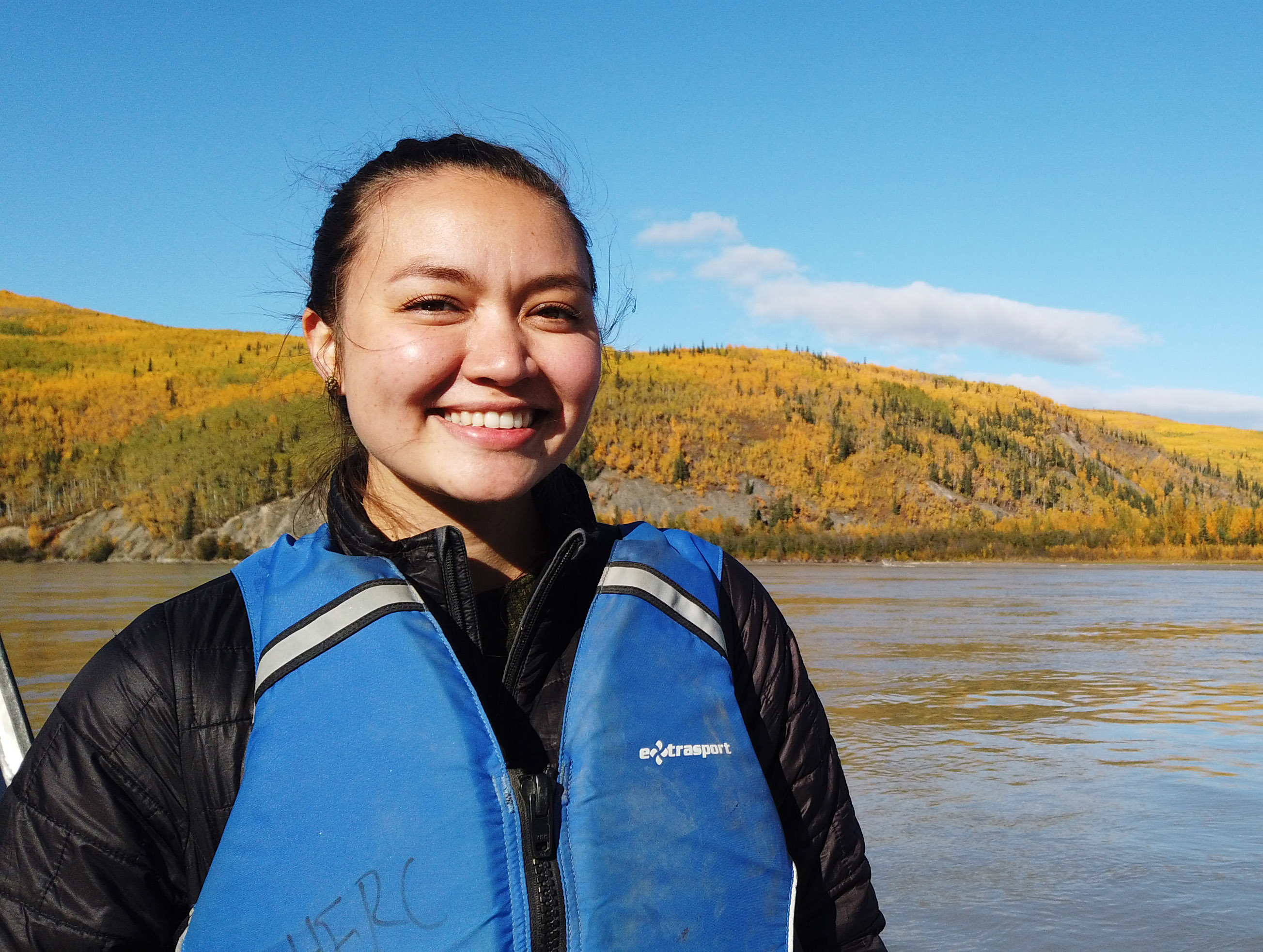Annalise Klein, ACEP’s Alaska Fellow, Brings a Rich Background in STEM Education

ACEP and the Alaska Regional Collaboration for Technology Innovation and Commercialization welcome Annalise Klein as the program’s first Alaska fellow. Klein was kind enough to introduce herself in the paragraphs below. Enjoy.
“If you drop by the ACEP offices, you’ll probably see me at one of the desks, an unfamiliar masked face, about 5’2” and wearing a lot of layers. I’m thrilled to join ACEP this year as the ARCTIC Fellow through the Alaska Fellows Program. AFP partners young professionals with nonprofit and public-sector organizations in Alaska. This year, I am working to build and implement a T3 Alliance framework in Kotzebue and Cordova high schools as part of the Community Energy Innovation Hub development.
“I hold a B.A. in chemistry and English from Hope College and an M.S. in secondary science education from Johns Hopkins University, entering this work with seven years in education as a public school science teacher and consultant. I partner with schools to meaningfully integrate science education with culturally resonant ways of knowing and thinking. My experiences range from being a Kilohana STEAM Academy instructor with Kamehameha Schools, developing a Chemistry for Social Justice unit for an urban San Jose high school, and coaching teachers in eastern Uganda in best practices for STEM inquiry, climate science and interdisciplinary projects as a Fulbright DAST recipient. What I saw as a consultant and teacher coach made me ask broader questions about the social and historical factors of today’s education reality. How does language and pedagogy play into a sense of belonging in science? In communities grappling with life-altering effects of climate change, why do we carry on with traditional science curriculum that seems so sterile and removed from lived experiences?
“The story of how I ended up connected with ACEP is winding and unexpected, the way many good origin stories go. In the fall of 2020, I was based in California, working remotely to design a sustainable fish camp STEAM curriculum for the Yupiit School District. I read about Dr. Katey Walter Anthony’s project studying methane gas seeps as potential energy sources in rural communities and sent her an email to learn more. She connected me with her Cordova high school contact, Adam Low, who is now the director of Upward Bound at UAF. If you know Adam, it’ll be no surprise to you that I was soon involved with T3 Alliance and Upward Bound. This led to an epic summer opportunity as an UB statistics instructor, traveling across Alaska to work with students in Chevak, Seward, Nikiski and Wrangell. Each community surprised me with their own stories, strengths and struggles, and I truly enjoyed the diverse ways in which students grew to confidently articulate their plans for making a difference in their community.
“As an educator, I see the ways in which traditional power dynamics in education have manifested in rural schools and their broader communities. I want to build inroads for aunties and uncles, education assistants and homegrown teachers to belong in the design and implementation of their school’s science education and community’s wellbeing. The more voices we include, the richer we understand our community’s challenges, how we interface with these problems, and how we empower the next generation of leaders.
More from Uganda and my summer with students in Alaska can be found here:
https://www.instagram.com/whereintheworldisklein/.”
Annalise Klein, an Alaska Fellow, joins ACEP working with the ARCTIC Program. Photo by Amanda Byrd.


